ST Modular Euphoria: Semi-modular, analogue, Easel-inspired DIY synth
Euphoria is a deeply beautiful semi-modular synthesizer inspired by the Buchla Music Easel and available exclusively as a DIY project for passionate builders.
Euphoria
Stefan of ST Modular makes some beautiful modules and superb demo videos. The teaser clips he’s put on Instagram about this mysterious synthesizer have been delightfully exciting. Nicely shot, well recorded, professionally presented. And now, out of the gloom and glow of the low light comes Euphoria – wow!
You are currently viewing a placeholder content from Default. To access the actual content, click the button below. Please note that doing so will share data with third-party providers.
Euphoria is an analogue semi-modular desktop synthesizer with complex oscillations and an instrumental approach. It’s designed to be played, to be experienced and explored. That is, once you’ve gone through the fascinating journey of putting all the pieces together.
It has two analogue oscillators, the Primary is based on the CEM3340 chip and exhibits all the usual waveforms plus some sub oscillations and noise sources. The Secondary oscillator is a newly developed wave-shaping tone generator with 5 waveforms, and 2 wavefolders to add some interesting distraction. Each oscillator has the use of a lowpass gate, VCA and ADSR envelope. Modulation is provided by an LFO and a Buchla 281e-inspired function generator.
Melody is provided by a 5-step trigger and CV sequencer plus a separate 4-step CV sequencer so you know things are always going to be all over the place.
The sliders along the bottom half of Euphoria provide intuitive interactions with sequencing, waveform levels, envelopes and functions. At the end of the chain is a choice of analogue or digital reverb and individual outputs on the oscillators, a mixed output and headphones.
Vari Board
One interesting feature is the Vari Board. This is an interchangeable breakout board that opens up some functions that are hidden behind the panel. You can enable different functions depending on what you want to use and choose how they behave. The functions include sequencer hold, LFO reset, and S&H options on the default board. There’s another board that features a Quad LFO and modulation crossfade. Apparently, other boards will become available as users come up with useful reasons for them.
Build the Euphoria yourself
This is not synth-building like the Moog snap-together Mavis or even the recent Dreadbox kits. Instead, you have 14 individual circuit boards and a front panel, and then you have to go off and source the rest of the components yourself. You’ll have choices to make around things like the Vari Board and if you want to install a reverb tank or a digital reverb brick. And then there’s the enclosure. It doesn’t come with a case, so you may also have to brush up on those joinery skills.
The build manual is fantastically good. Stefan has obviously put a lot of work into the documentation, and the level of detail is highly commendable.
What perhaps the website doesn’t make very clear is that the components are largely surface mount. So that might be quite challenging if you’ve never soldered SMD before. And in total, there are 1680 parts to solder.
Availability
ST Modular only ever provides the PCB and front panels, and it does so through synth DIY stores such as Pusherman Productions in the UK and Calsynth in Los Angeles. I’ve seen a comment from Pusherman that they will be providing a limited number of full kits, which is great if you feel the task of sourcing your own parts to be a bit too huge. ST Modular suggests the full cost of the synth would be around €600 for the parts, which doesn’t sound too bad. You’ve just got to factor in your time building the thing.
Currently, we have no price on the front panel and PCB set and it is listed as “coming soon”.
Euphoria looks amazing and would make for a fascinating project with an awesome payoff if you can get it to work. I am very tempted.
You are currently viewing a placeholder content from YouTube. To access the actual content, click the button below. Please note that doing so will share data with third-party providers.
6 responses to “ST Modular Euphoria: Semi-modular, analogue, Easel-inspired DIY synth”
You are currently viewing a placeholder content from Facebook. To access the actual content, click the button below. Please note that doing so will share data with third-party providers.
More InformationYou are currently viewing a placeholder content from Instagram. To access the actual content, click the button below. Please note that doing so will share data with third-party providers.
More InformationYou are currently viewing a placeholder content from X. To access the actual content, click the button below. Please note that doing so will share data with third-party providers.
More Information 3,6 / 5,0 |
3,6 / 5,0 | 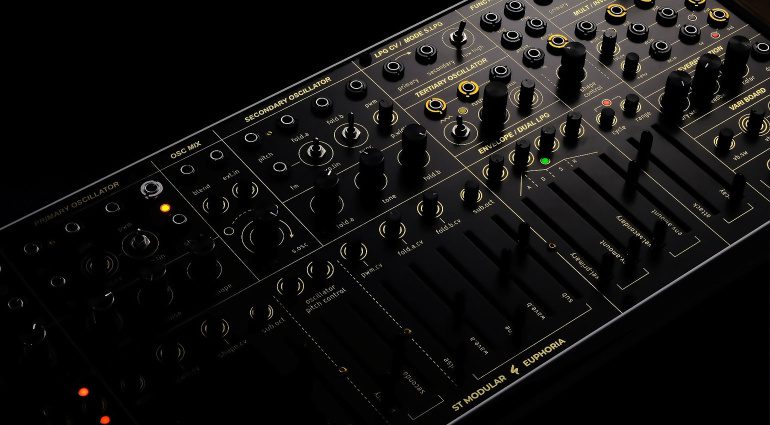
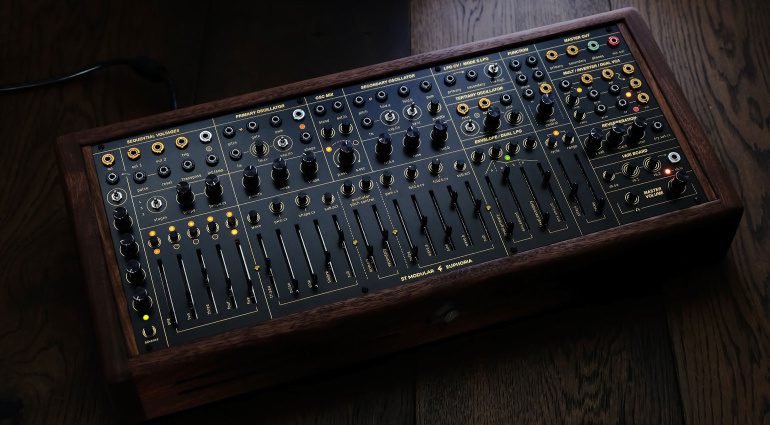
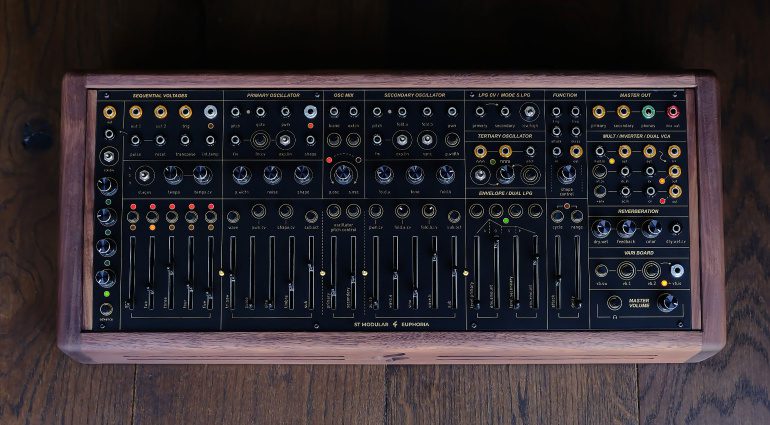
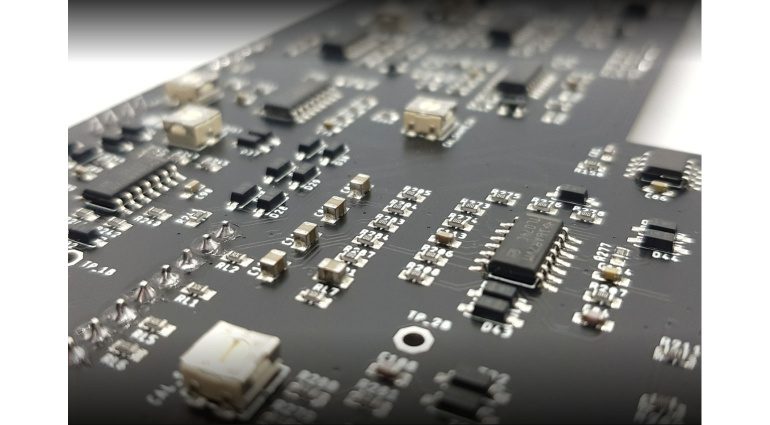




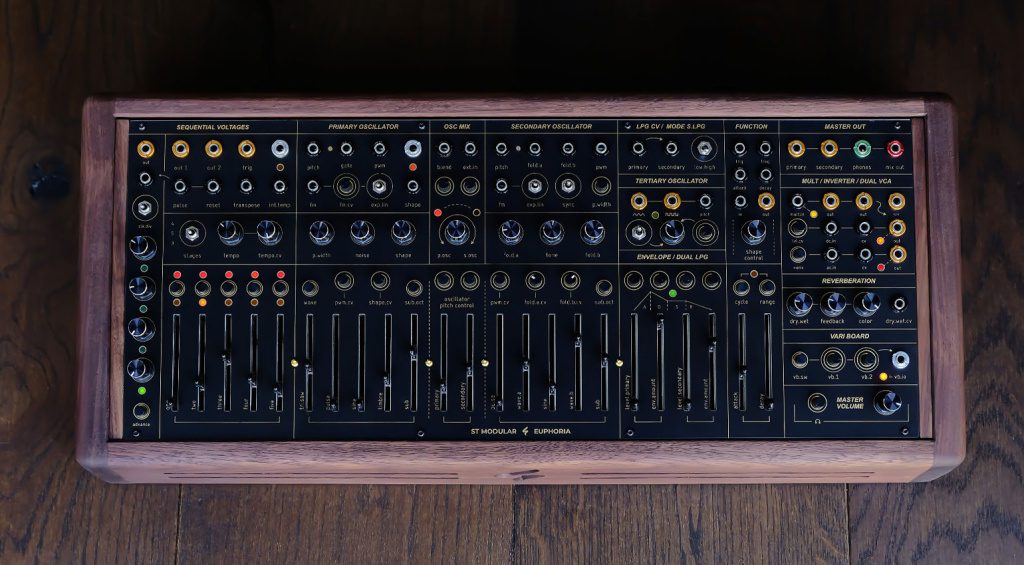
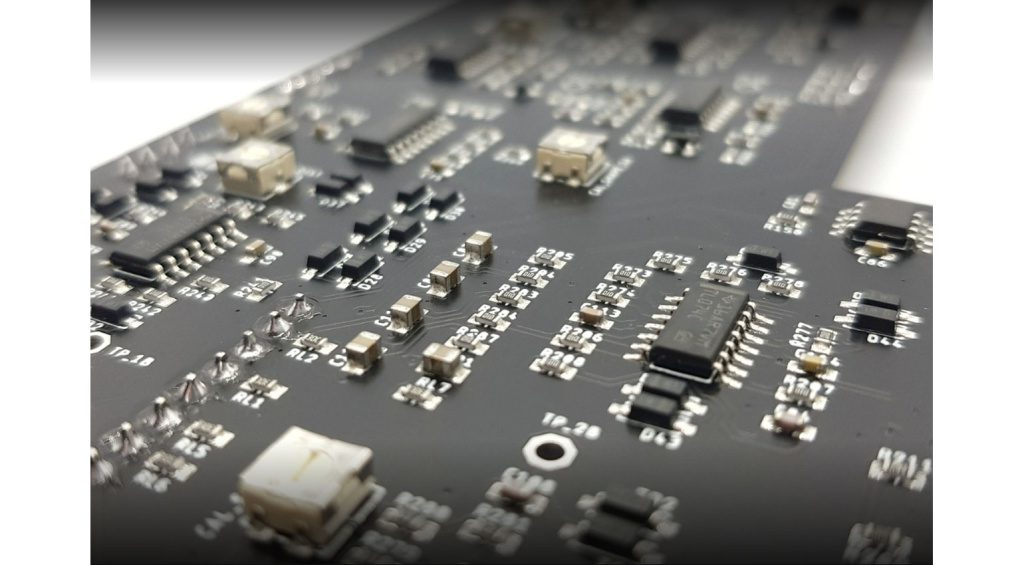
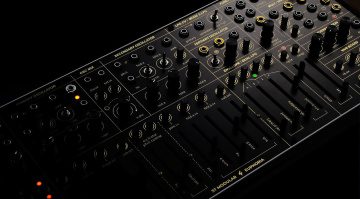

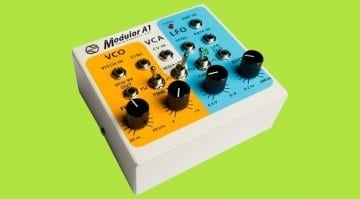
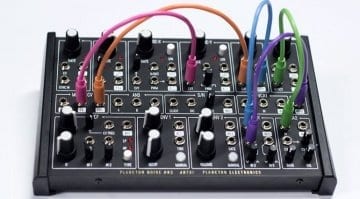
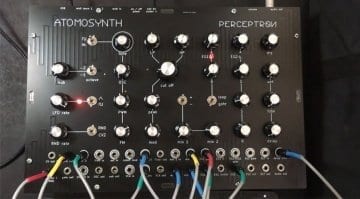
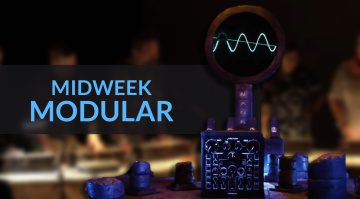
single pcb would be cheaper.
Possibly but in the documentation, Stefan talks about the repairability and versatility of having individual PCBs for each module, so I guess it depends on your focus and priorities.
Agreed! I’m building the Resemble, a souped up Oberheim SEM semi-modular in eurorack – also a great, affordable multi PCB-single panel DIY synth.
As a first time synth DIY’er, only having to troubleshoot one pcb at a time is a huge help. And if a certain function in the synth fails, indeed, as Robin says, I can just pull that one out as if it were a single module.
I’m probably old fashioned, but I’m not a big fan of currently having both our software UIs, and current synth and audio hardware controls and labeling panels all in black. Black, black, black everywhere!
This is probably FAR too long a stretch to make the connection, but I get the reaction by corrupt bureaucracies worldwide to covid has been horrible, but making all our creative tools look as if they were designed for Sauron and his minions is getting old, lol.
I am on board with this theory, and raise you a concept album based around it. I can already imagine the artwork… 🙂
Buchla used color to distringuish purpose of just about every function in the Easel. I’ve found putting little color coded rings on the knobs of my synths improves their usability immensely. (Check out Knobtron by Uwyn aka Geert Bevan)